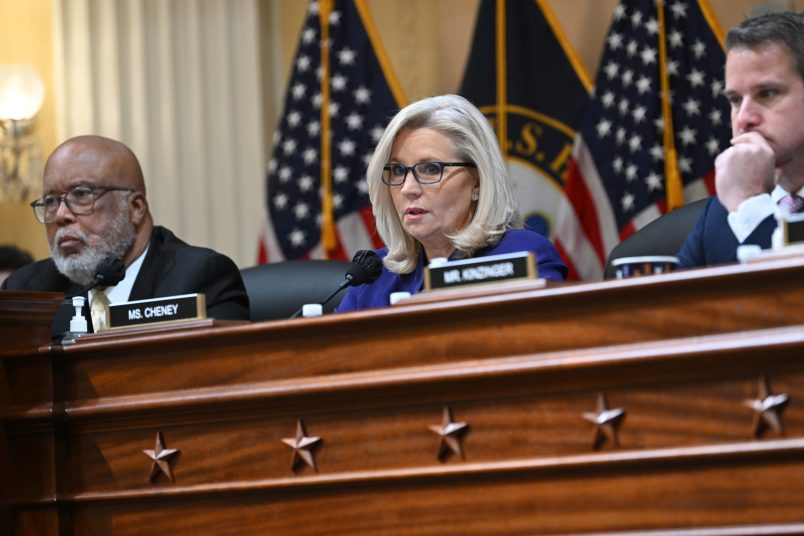Well, it’s over. The Jan. 6 committee has wrapped up its investigation and published its findings online for reporters to comb through right before the holidays. The final report provided more insight as to how deep the conspiracy to prop up the Big Lie went in Trumpworld.
The House select committee also published 11 recommendations for what Congress can do to prevent another insurrection from brewing. Some of the reforms are already underway, while others may take a little more legwork. Here are some of the notable suggestions they made:
Reforming the Electoral Count Act
The committee’s first recommendation was to update the Electoral Count Act (ECA) to reflect modern challenges.
The ECA was established in 1887 to provide guidance for how presidential election results should be certified, during a Gilded Age election season even more heated than 2020’s. The language wasn’t very clear, however, so Trump attorney John Eastman tried to exploit its vagueness to argue that Vice President Mike Pence had the power to override the election results.
He didn’t, and recent legislation that’s moved through the chambers hopes to make that crystal clear. Two separate yet similar reform bills were introduced in the House and Senate this year, but the committee seemed biased towards the former. “[The House bill] reaffirms that a Vice President has no authority or discretion to reject an official electoral slate submitted by the Governor of a state,” the report says. “It also reforms Congress’s counting rules to help ensure that objections in the joint session conform to Congress’s narrow constitutional role under Article II and the Twelfth Amendment.”
But the Senate bill, which does largely the same thing, stands closest to passing since lawmakers attached it to next year’s omnibus spending package.
Invoking the 14th Amendment
The committee dusted off a constitutional provision that, until recently, hadn’t been touched since 1869. Section 3 of the 14th Amendment, also known as the Disqualification Clause, prohibits anyone who “hold[s] any office, civil or military, under the United States” from engaging in “insurrection or rebellion” against the country at the risk of being disqualified from public office.
“The Select Committee has referred Donald Trump and others for possible prosecution under 18 U.S.C. 2383, including for assisting and providing aid and comfort to an insurrection,” the report says. “The Committee also notes that Donald J. Trump was impeached by a majority of the House of Representatives for Incitement of an Insurrection, and there were 57 votes in the Senate for his conviction.”
The statute had lain dormant for over a century until this year, when a New Mexico judge used it to oust Cowboys for Trump founder Couy Griffin from his role as an Otero County commissioner.
More Oversight of the Capitol Police
“Congressional committees of jurisdiction should continue regular and rigorous oversight of the United States Capitol Police as it improves its planning, training, equipping, and intelligence process and practices its critical incident response protocols, both internally and with law enforcement partners,” the report says.
The Capitol Police have faced heightened scrutiny as reports rolled out about the agency’s failures before and during the attack. At the very least, the insurrection exposed just how woefully unprepared the force was in the face of attacks that were planned online months in advance.
Revisiting the Insurrection Act
The committee closes out the report by touching on a small (but not unimportant) piece of the investigation: Trump’s interest in the Insurrection Act. In their interview with former Defense Secretary Mark Esper, they focused on the former president’s eagerness to invoke the statute, which allows the president to deploy military force to suppress rebellion within the United States, against Black Lives Matter protesters at Lafayette Square Park back in June 2020.
“Congressional Committees of jurisdiction should further evaluate all such evidence, and consider risks posted for future elections,” the report says.



